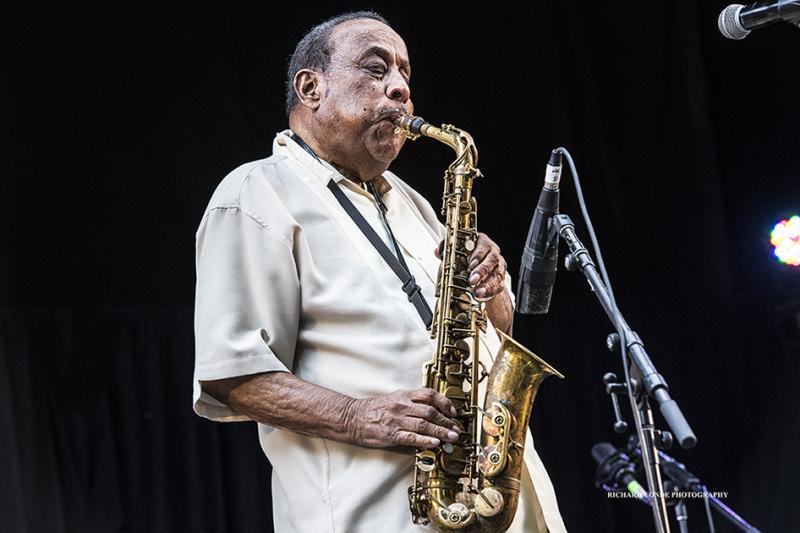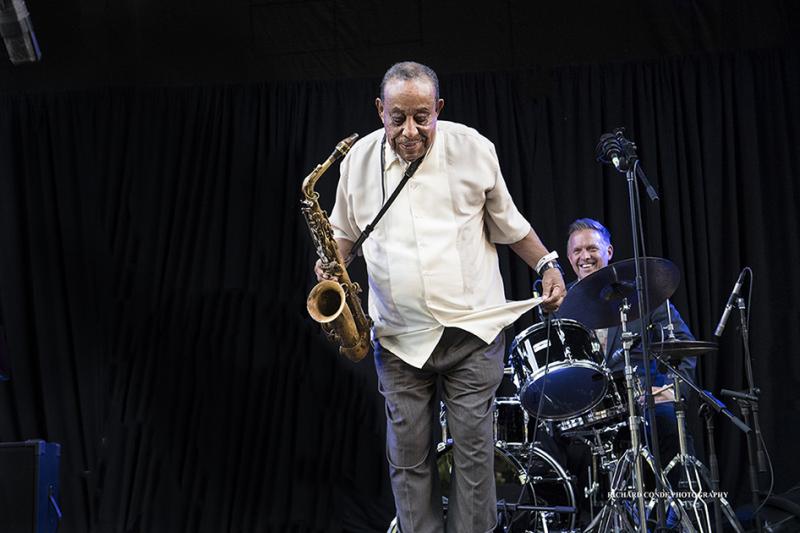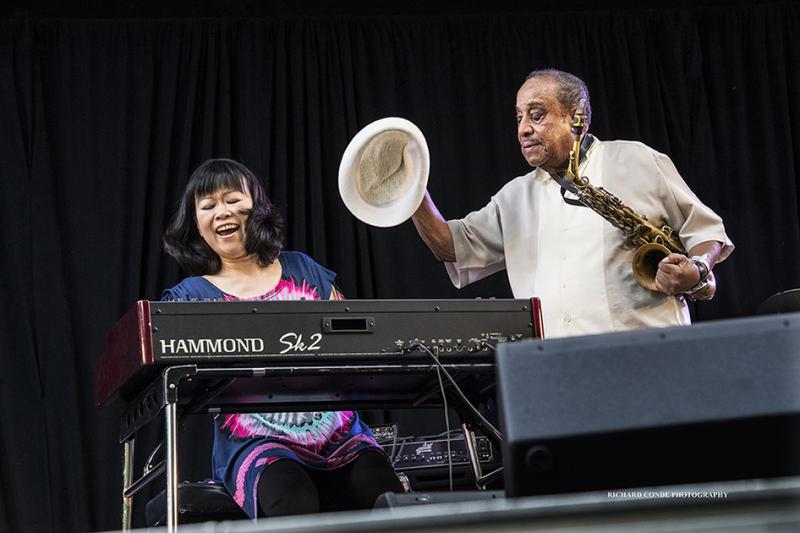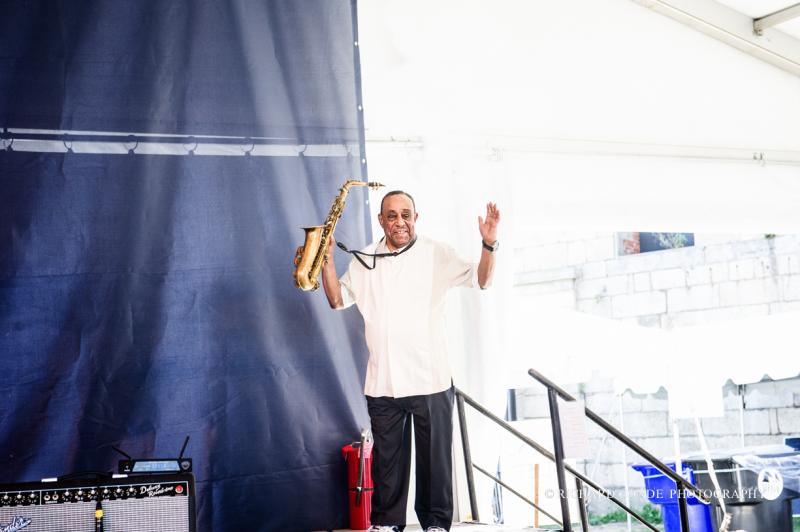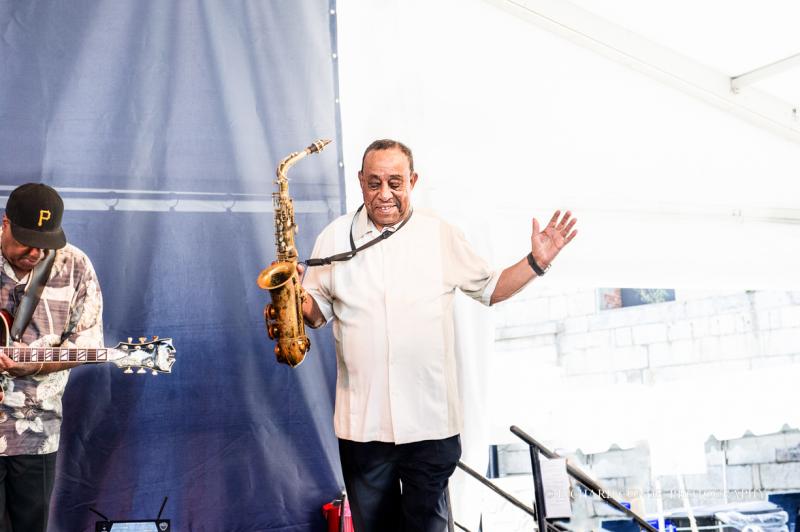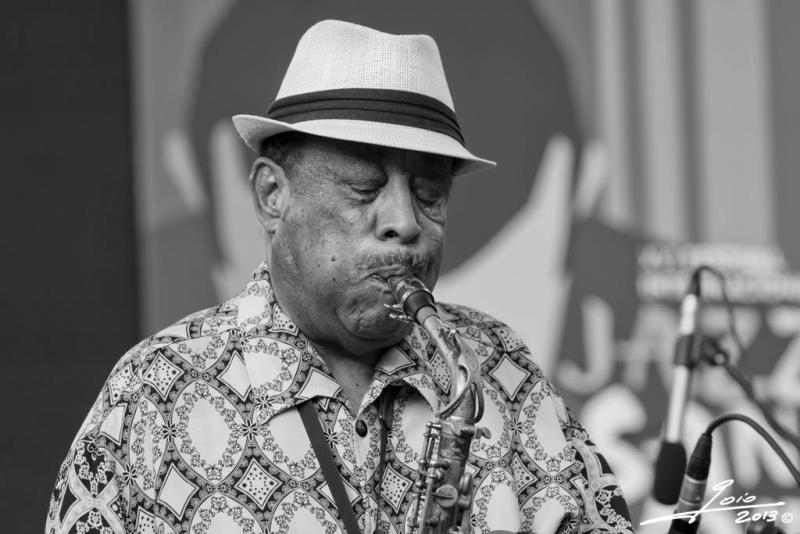Home » Jazz Articles » Catching Up With » Soul Survivor: Lou Donaldson Keeps the Bop Flame Alive
Soul Survivor: Lou Donaldson Keeps the Bop Flame Alive
And you know music rotates about every 20 years, so these kids that were 10 years old are now 20 and 30 years old and so the music is new to them. Actually, theyíre buying more of it now than they did then.
Now in his 75th year, Lou Donaldson counts among the few remaining jazz luminaries of the bebop era still active on the international scene. When I recently sat down to talk with him by phone from his home in Florida, Donaldson had just returned from tours in England, Italy and Greece. The ebullient alto man was then set to fly to New York the following Monday for a weeklong run at the Village Vanguard. A veteran of the Blue Note era and talent scout for the label, Donaldson's tart approach was clearly descendent of the bebop language being spoken by Charlie Parker and his disciples. But as preeminent producer Bob Porter has stated, Donaldson best exemplifies the Parker spirit without being a slavish imitator. During the '60s and '70s, the alto saxophonist brought his music to a wider audience via the success of such deliriously funky albums as Alligator Boogaloo, Midnight Creeper, and Everything I Play Is Funky. While some may have questioned the motives, Donaldson developed a soulful new jazz hybrid that continues to communicate to audiences of all ages.
All About Jazz: Well Lou, it seems you're very busy this fall with a good deal of touring abroad and now in the States. It seems to me it's been a long time since you've played in Cleveland.
Lou DonaIdson: I came through a lot during the '60s—places like Leoís Casino and the Sir-Rah's House where I played with Bobby Harris.
AAJ: Do you still have ties with anyone in Cleveland?
LD: All the people I knew are gone. I knew Joe Holiday and Weasel Parker. Well, and Willie Smith is still there. He just wrote a nice album for Joe Lovano, which Joe played for me on the telephone. You know I knew Joe's father too.
AAJ: You mean "Big T" Lovano?
LD: Yeah, "Big T." He used to bring around Joe when he was a little kid when I used to play in Cleveland. You know, I played Cleveland for years. I even played a club Don King had out there called the Corner Tavern in the early '60s. It was great in Cleveland; the Modern Jazz Room was there.
AAJ: So, tell us about your time spent with Alfred Lion and Francis Wolff recording for Blue Note Records.
LD: They liked the music. It wasnít like a business arrangement like with a lot of companies now. They enjoyed the music so thatís why they recorded what they recorded.
AAJ: By the time of your later Blue Note records the company had been taken over by the large conglomerate of Liberty Records. Was it their idea to have you do Alligator Boogaloo or was that kind of soulful vibe a new direction you were interested in exploring?
LD: That was just a throw in on a record date; it wasn't a direction I was going in. They wanted to get into competition with pop music.
AAJ: Did that bother you at all?
LD: No, it's swing music, that's all it is.
AAJ: That was certainly a wonderful group you had back then, with Dr. Lonnie Smith, George Benson and Idris Muhammad.
LD: That was a great group; I'd play that music for nothing-no money.
AAJ: Now, you were instrumental in getting Grant Green a start at Blue Note, right?
LD: I got all of them a start. They worked in my band—Grant, Blue Mitchelll, Horace Silver, Stanley and Tommy Turrentine, The 3 Sounds—and I brought all of those people to Blue Note.
AAJ: It sure seems a lot different then than it is now.
LD: Back then you had to play to satisfy the musicians. It wasn't like it is now, where they have publicity and Madison Avenue pushing musicians. And a lot of them can't even play, but the people don't know. They tell them they're great, so they believe it.
AAJ: What was it like working with Art Blakey?
LD: Art was a great musician, and it was really nice when Clifford Brown was there. Art was hard to deal with sometimes, but that wasnít unusual for that period of time. You know what all musicians were doing then, although I wonít go into all the customs and mores, but it wasnít exactly compatible with me. I was a square because I didn't drink or smoke. I never did that kind of stuff because if I did I couldn't play.
AAJ: Well, I know you do a lot of live performances; do you have any recordings planned for the near future?
LD: No, I havenít thought of recording for years because everybody's sampling my records that I did during the '60s and '70s and what they're doing is re-releasing a lot of the records. And you know music rotates about every 20 years, so these kids that were 10 years old are now 20 and 30 years old and so the music is new to them. Actually, they're buying more of it now than they did then. You know, because they have to listen to TV with Puff Daddy and Heavy D and all that, this music sounds new to them. Plus, it's better because they can see where they got that music from— all the rhythm and the beats.
AAJ: How often do you do live gigs these days?
LD: It varies, but right now weíve been so busy Iíve had to cancel a lot of work because physically Iím not able to do all of it. It's not the work, it's the traveling and changing countries and altitudes and water and food. It gets to you when you get up in age.
AAJ: Again, it seems that there are fewer places to play here in the States than there used to be.
LD: Nothing is like it used to be. Those places are not there. We used to play a lot of those ghetto clubs and they arenít even there anymore. Itís more like jazz societies and concerts now. When I started out, everything we played for was for dancing, but itís much different today.
AAJ: That doesnít seem to be so much of an issue though in Europe.
LD: They had police escorts over there in Greece. It surprised me so much. Well, you learn; you know you never get old enough not to learn. But I didnít realize people over there listen to the music the way that they did.
AAJ: Itís a shame the music is not valued as much here in our own country.
LD: Well, you have a lot of different interests here, especially since television. You know they can wipe you out and over publicize, like Kenny G and stuff like that. You know that's all right, that's good music too, it's just not jazz.
Related Photos
< Previous
Joni Mitchell at Newport
Comments
About Lou Donaldson
Instrument: Saxophone
Related Articles | Concerts | Albums | Photos | Similar ToTags
Interview
Lou Donaldson
AAJ Staff
Village Vanguard
Charlie Parker
Cleveland
joe lovano
Lonnie Smith
george benson
Idris Muhammad
Grant Green
Blue Mitchel
Horace Silver
Tommy Turrentine
Art Blakey
Clifford Brown
Blue Note Records
C. Andrew Hovan
For the Love of Jazz
 All About Jazz has been a pillar of jazz since 1995, championing it as an art form and, more importantly, supporting the musicians who create it. Our enduring commitment has made "AAJ" one of the most culturally important websites of its kind, read by hundreds of thousands of fans, musicians and industry figures every month.
All About Jazz has been a pillar of jazz since 1995, championing it as an art form and, more importantly, supporting the musicians who create it. Our enduring commitment has made "AAJ" one of the most culturally important websites of its kind, read by hundreds of thousands of fans, musicians and industry figures every month.

